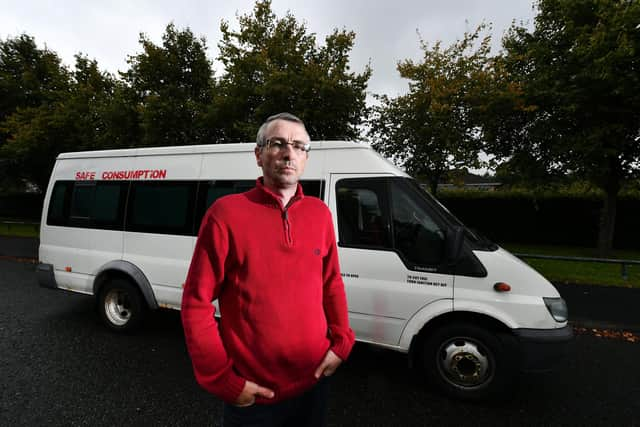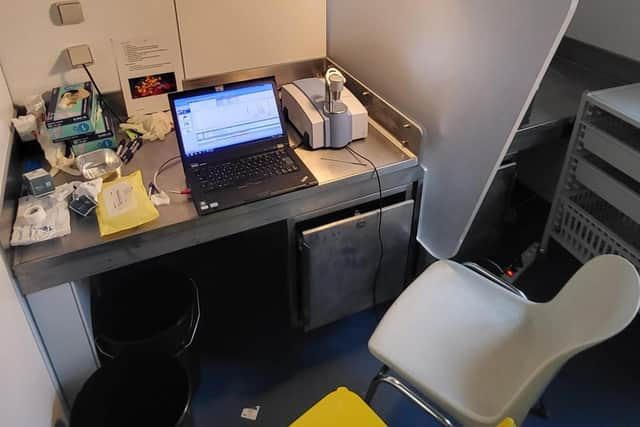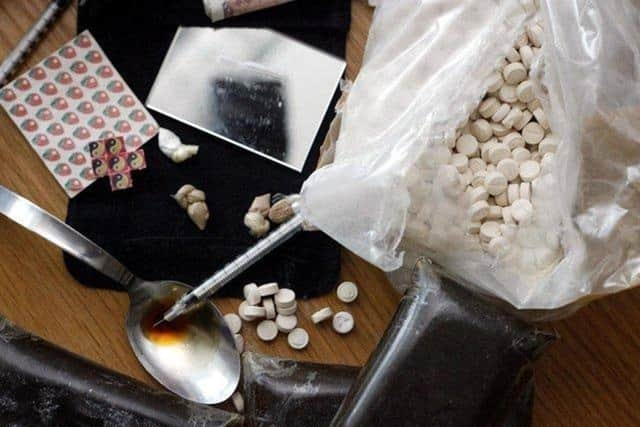Words mean little without action on drugs policy – Peter Krykant
Over the last few weeks, Scotland’s drug deaths crisis has been the focus of much media attention, starting with drug death figures for 2022 being published last month showing the lowest figures since 2017 and a 21 per cent drop from the previous year.
This however, also highlighted the scale of the problem.
With 1,051 deaths, this is still the highest in Europe and 2.7 times higher than in England and Wales.


Advertisement
Hide AdAdvertisement
Hide AdHowever, this gap could shorten with most predicting another increase when deaths in England and Wales for 2022 are announced later this year.
Deaths have increased each year for over a decade south of the border, which again highlights the problem.
With unprecedented levels of people dying across the UK, this is not going away and the approaches currently in place must be changed.
Another factor which has kept the focus on preventable drug deaths has been the House of Commons’ home affairs select committee recommending the implementation of overdose prevention centres, for diamorphine treatments (to be centrally funded), and a national drug checking service.


The Conservative front benches dismissed these recommendations instantly, despite the majority on the committee being Conservative MPs.
This was no surprise, given they have dismissed similar recommendations from multiple organisations, including their own advisory council, on many occasions.
The only difference this time was that their own MPs were making these recommendations.
This week saw Scotland’s Lord Advocate Dorothy Bain KC pave the way for overdose prevention sites in Scotland, saying it would not be in the “public interest” to prosecute people for simple possession of drugs when attending these sites.


Advertisement
Hide AdAdvertisement
Hide AdSurprisingly, the UK Government has shown no push back and will not block this move.
The law has always been controlled in Scotland and it has been proved by the site I operated in Glasgow that it can work alongside Police Scotland.
As far as I am concerned the pilot I operated was proof of concept.
It was evaluated, and I am concerned that already the Scottish Governmentseem to be dragging their feet by only looking to start one pilot.
Police Scotland is not regional, and guidance can and should be used to start these sites in multiple locations and to evaluate different models.
What we could see is a long, drawn-out single pilot, further unneeded calls for Westminster to devolve or change laws for more sites, and a mirror of the diamorphine treatment (sometimes referred to as heroin assisted treatment) in Glasgow, with an overdose prevention site being delivered under a fully medical model, which is costly and not required.
Former first minister Nicola Sturgeon promised in January 2021 that diamorphine funding would be made available in that financial year.
Now in September 2023 we still have no further diamorphine treatment outside the small Glasgow project.
Why? That’s hard to answer.
Advertisement
Hide AdAdvertisement
Hide AdThe Scottish Government have the evidence of the effectiveness of this treatment and they have been given the costs from where this has been run in England from Cranstoun Clinical Director Danny Ahmed, who has experience delivering the same treatment delivered at a third of the Glasgow treatment costs.
Yet we still seem no further forward.
We cannot underplay these treatments.
They capture people who are heroin dependent where other treatments have not, including methadone and attempts at abstinence.
Had this treatment been rolled out two and a half years ago as promised, I am in no doubt hundreds of deaths could have been avoided.
I was in the chamber at Holyrood this week to hear Drugs Policy Minister Elena Whitham make a statement on drugs.
I have no doubt about her sincerity, as I did with the previous drugs minister.
I do have major doubts as to whether Ms Whitham will have to stand up next year making the same condolences speech to well over 1,000 families across Scotland.
Indications suggest we are seeing more deaths again, as highlighted in police figures from the first half of this year.
We know synthetic drugs are being detected in the UK – these can be hundreds of times stronger than heroin and could become more common in Scotland.
Advertisement
Hide AdAdvertisement
Hide AdWe have seen the devastation they have caused in North America.
Scotland has had similar death rates per head of population without synthetics, so it is not hard to imagine the levels of devastation these drugs could bring if or when they arrive here on a larger scale.
This is always a difficult time of year for me with all the media attention, and I am sure for many others as they are reminded of lost loved ones.
While I have great personal pride in having played a very small part in Scotland now opening an overdose prevention centre, and the announcement in 2021 of an extra £250 million investment in treatment services, I also have no doubt that much of the action needed has not yet been taken and previously mentioned promises have not been kept.
One overdose prevention centre is not enough – we need multiple sites and widespread diamorphine treatment.
We need comprehensive, fast access to methadone; we need drug checking services and, most importantly, we need to address health, welfare and social determinants.
Stigma, drugs laws and social deprivation are often causing more problems for people than the drugs.
The Scottish Government must stop any constitutional battles and use the power they have to implement these actions, re-evaluate the costly medical models they have put in place, and take action now.
Advertisement
Hide AdAdvertisement
Hide AdWords without action mean little, as so many continue to stand over the coffins of loved ones.
Peter Krykant is the campaigns lead for Cranstoun, and previously operated an unsanctioned drug consumption van in Glasgow.
Comments
Want to join the conversation? Please or to comment on this article.